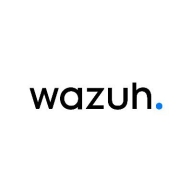

Wazuh and Elastic Stack compete in the realm of security information and event management (SIEM) solutions. Based on the comparisons, Wazuh has an advantage in terms of cost-effectiveness and robust integration features, though Elastic Stack excels in ease of implementation and search capabilities.
Features: Wazuh is known for robust integration capabilities, comprehensive compliance features, and cost-effectiveness as an open-source solution. It offers cloud-native infrastructure and flexible deployment. Elastic Stack is recognized for its ease of implementation, powerful search capabilities, and machine learning features. It is strong in log management and real-time monitoring.
Room for Improvement: Wazuh could enhance threat intelligence, scalability, and integration with enterprise solutions. Users find its configuration complex. Elastic Stack requires improvements in search precision, licensing clarity, and pricing, as well as integration with authentication systems.
Ease of Deployment and Customer Service: Wazuh is primarily deployed on-premises but supports hybrid and cloud environments. Community forums are a common support avenue. Elastic Stack offers hybrid and cloud deployments, praised for its documentation but limited support for complex setups.
Pricing and ROI: Wazuh's open-source model implies minimal initial costs; however, resource investments may arise. Elastic Stack can become expensive in large-scale deployments despite starting as open-source. Both tools offer savings through reduced detection times.
| Product | Market Share (%) |
|---|---|
| Wazuh | 12.2% |
| Elastic Stack | 4.9% |
| Other | 82.9% |


| Company Size | Count |
|---|---|
| Small Business | 10 |
| Midsize Enterprise | 2 |
| Large Enterprise | 5 |
| Company Size | Count |
|---|---|
| Small Business | 26 |
| Midsize Enterprise | 15 |
| Large Enterprise | 8 |
Elastic Stack is a comprehensive tool for log management, observability, indexing, and security, widely adopted for managing logs, alert creation, SIEM, SOC, and threat analysis. It integrates with CloudStrike and Endpoint Security, enhancing search capabilities and Application Performance Monitoring.
Elastic Stack offers powerful solutions for logging, data storage, and visualization with Kibana. It allows MSSPs to efficiently manage security and assists companies with data analysis. It's known for its easy implementation, scalability, real-time monitoring, and extensive integrations. The open-source nature and community support add significant value, making it a popular choice across industries. While highly capable, there is a need for enhancement in dashboard implementation, data integration, and certain advanced features. Licensing, compatibility, and cost-related improvements can further elevate its efficacy.
What are the key features of Elastic Stack?In healthcare, Elastic Stack enhances database search capabilities, aiding in patient record management and data retrieval. Managed Security Service Providers use it for comprehensive security management, integrating it with tools like firewalls and authentication systems. Companies benefit from its application in Application Performance Monitoring and its flexibility in adapting to hybrid environments.
Wazuh offers comprehensive security features like MITRE ATT&CK correlation, log monitoring, and cloud-native infrastructure. It ensures compliance and provides intrusion detection with high scalability and open-source flexibility, ideal for businesses seeking robust SIEM capabilities.
Wazuh stands out in security information and event management by providing efficient log aggregation, vulnerability scanning, and event correlation against MITRE ATT&CK. Its capability to integrate seamlessly with environments, manage compliance, and monitor files makes it suitable for cloud-native infrastructures and financial sectors. Despite its technical support needing enhancement and opportunities for improving AI integration and threat intelligence, its open-source nature and cost-effectiveness make it appealing. Users can leverage custom dashboards powered by Elasticsearch for precise data analysis, even though there is a desire for a more user-friendly interface and better enterprise solution integration. Deployment may be complex, but its features contribute significantly to fortified security postures.
What are the essential features of Wazuh?Industries like finance and cloud infrastructure heavily utilize Wazuh for its security strengths. By monitoring endpoints and ensuring compliance with frameworks, companies can improve security posture and swiftly detect anomalies. The platform's focus on event correlation and alerts for security incidents is particularly beneficial.
We monitor all Log Management reviews to prevent fraudulent reviews and keep review quality high. We do not post reviews by company employees or direct competitors. We validate each review for authenticity via cross-reference with LinkedIn, and personal follow-up with the reviewer when necessary.